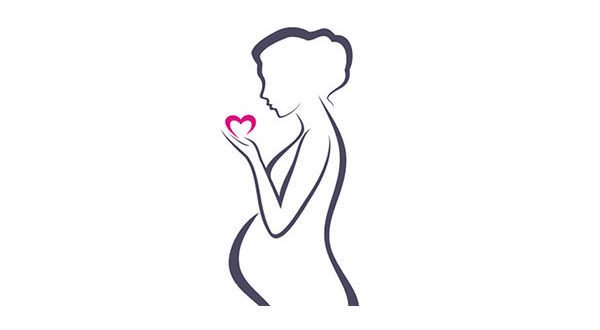Doctors screen expectant Moms for Group B Streptococcus (GBS) between 36- 37 6/7 weeks of pregnancy. They do this by swabbing the vagina and the rectum with big Q-tips and sending the Q-tips to a lab to be tested for GBS.
What’s Group B Streptococcus?
Group B Streptococcus (fancy name: Streptococcus agalactiae) is a bacterium that naturally lives in our GI tracts. It can become a problem during pregnancy, though, if it spreads to the vagina and infects the baby during childbirth.
Does Every Pregnant Woman Need to Be Screened for GBS?
No. Certain groups are treated as if they’re already GBS positive. Because of this they don’t have to undergo the GBS screening process. These groups include:
1. Women with GBS bacteria in their urine (which is usually picked up by one of the many urine tests done during pregnancy).
2. Women who have already given birth to a baby with a GBS infection.
Note: If you tested positive for GBS during a previous pregnancy (and your baby never developed a GBS infection), you still need to get tested for GBS during your current pregnancy.
Why? Won’t I Just Test Positive for GBS Again? Not necessarily. The weird thing about GBS is that it’s a transient interloper of the vagina. Because it comes and goes, you could be GBS negative during one pregnancy and GBS positive during another.
Common Questions:

Why Do Doctors Care So Much About the GBS Status of Pregnant Women?
Because a GBS positive woman can unwittingly transmit the GBS bacteria to her baby during delivery. If this occurs, the baby could develop serious problems such as sepsis (a blood infection), pneumonia (a lung infection), or meningitis (inflammation of the tissues surrounding the brain and spinal cord). Fortunately, antibiotics can be given to Mom-to-be to prevent the GBS bacteria from infecting the baby. (Antibiotics can also be given to the baby after delivery).
What Can I Do to Prevent Being GBS Positive?
Nothing, unfortunately. It’s just bad luck. Roughly 25% of women randomly test positive for GBS on their screening test.1
Okay. If I Test Positive for GBS, What Will Happen Next?
- When you arrive at the hospital to deliver your baby, you’ll be given an initial dose of antibiotics to prevent GBS transmission to your baby. The goal is to get one full dose of IV antibiotics into you at least 4 hours before delivery.
- The antibiotic of choice in this case is good old penicillin. If you’re allergic to penicillin, don’t worry, there are other options.
- Once the first dose is in, your doctor will give you extra doses of penicillin every 4 hours until you deliver (just to be on the safe side).
Exception: If you’re GBS-positive but you’re scheduled for a C-section, then you’re off the hook for the antibiotics (as long as you don’t go into labor beforehand). Why? Because the baby doesn’t pass through the birth canal (where the bacteria are hanging out) during a C-section.
PediaTip: If you’re GBS-positive, remind your doctor of this fact when you show up to the hospital to deliver your baby. This info should already be in your chart, but a friendly reminder never hurts.
Here’s a Summary of the Women Who Should Receive Antibiotics During Labor & Delivery (Based on their GBS Status):

- GBS-Positive Women Who Plan to Deliver Vaginally.
- Women With the GBS Bacterium in their Urine and Those Who Previously Gave Birth to a Baby with a GBS Infection.
Remember, these women are treated as if they’re GBS positive (even though they aren’t tested for GBS during their pregnancy).
- Women With an Unknown GBS Status Who Have One or More of the Following Risk Factors:
- “Prolonged rupture of membranes”-meaning Mom-to-be’s water has been broken for 18 hours of more.
Why Does This Matter? Because there’s a greater risk of infection if your “bag of waters” has been ruptured for a while. - A fever (a temperature of 100.4°F or above) in Mom during childbirth. Why? Because a fever is a sign of an infection.
- Preterm labor (labor before 37 weeks of gestation).
- A positive “NAAT” (nucleic acid amplification test) for GBS. This test is different from the GBS swab test and isn’t available in most settings.
- “Prolonged rupture of membranes”-meaning Mom-to-be’s water has been broken for 18 hours of more.
Is All of the Hysteria Surrounding GBS Worth It?
Yes! Universal GBS screening and the use of antibiotics to prevent GBS transmission to the baby have cut the rate of early newborn GBS infections by 80%.2
Insider Info: Because the antibiotics don’t prevent 100% of GBS infections in babies, pediatricians have developed a protocol to manage babies born to GBS-positive Moms. Get Wise about it here.
Recap
Your doctor will test you for Group B Strep between 36-37 6/7 weeks. If you have GBS bacteria in your urine or you had a baby born with a GBS infection in the past, then your doctor will treat you as if you’re GBS positive.
If you’re GBS-positive, then you’ll receive antibiotics when you arrive at the hospital for your delivery. If you’re scheduled for a C-section and you don’t go into labor beforehand, you get to skip the antibiotics.





